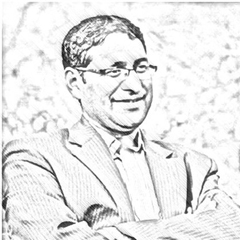Federal Minister for Aviation stated in the National Assembly that 141 pilots held suspicious licenses and were not qualified enough to fly an aeroplane. This indicated an institutional decay. The Minister further added that 262 pilots were never trained by aviation trainers and had paid money to get licenses. Pakistan has a total of 860 active pilots but if these 262 were deducted, only 418 pilots were eligible to fly. Meanwhile, Kuwait Airways grounded seven and Vietnamese airlines grounded 27 Pakistani pilots amid fear of possible crashes due to these concerns over fake licenses. Unfortunately, this gloomy picture did not portray any hope for the aviation industry shortly. Such incapacitated manpower in the highly sensitive aviation industry reflects that the history of crashes is also very dismayed. The country loses brilliant people and human lives but has, unfortunately, never learnt a lesson.
Pilot training and licensing is an elite business. A common man does not have the capacity or resources to get a license to fly an aeroplane. These pilots are not only from the elite background only but also with a lot of social networking and enjoying power and prestige in the Pakistani society. Additionally, the licensing is not only a business of any common firm or business enterprise but again, a powerful state organisation is responsible. Therefore, the powerful person sitting in those organisations may be probed to issue the license and penalised for bringing shame for the state and society at the cost of precious human lives.
A common man does not have the capacity or resources to get a license to fly an aeroplane
However, we must know that licensing in Pakistan is not a serious business and neither state nor the society takes it seriously. Pakistani drivers are also driving vehicles on roads, highways and motorways without licenses or with fake licenses. According to a survey, less than two per cent Pakistani have learnt driving from a training institute and 98 per cent have learnt informally from their relatives, friends or through trial and error. Overall, 52 per cent have any kind of license; fake or real. Sadly, 48 per cent of drivers are without any kind of license. Astonishingly, 67 per cent drivers believe that road accidents are due to luck and hardly consider training and licensing a serious issue behind the road crashes. No authority bothers to check the license and the quality of license. This reflects the state of affairs of our roads. The results are clear and depict the gloomy picture of the road crashes. Pakistan loses 27,582 people due to road crashes in a year as per the WHO Report of 2018. About 50,000 people are victims of serious injuries and get disabled every year due to vehicle crashes. Every minute, there is a road accident somewhere in Pakistan. Almost no driver on the road knows in which line and where and what speed he/she should drive. Sometimes, these untrained and unskilled drivers are driving at a speed of 30 km/hr on fast line (right line or overtaking line) on national highway/ motorways and, thus, blocking the highway. Other times, they are driving at 120 on the left line and killing people. No law enforcement agency hardly considers it a problem or loss of the nation’s resources.
The economic loses are even worse. Pakistan is losing about 9 billion US dollar per year due to the collapse and rupture of the vehicles and maintenance as per Ministry of Communication Report 2018. It also included the opportunity. This is equal to four per cent of the GDP. If we also add environmental and health costs, it will cross over 15 per cent of the GDP. This indicates the almost double cost of the defence budget of Pakistan. In other words, Pakistanis are wasting double money on roads, inhaling carbon emissions and adding health budget but they are not ready to be disciplined and control this hefty money and human damages.
Trauma and social costs are not included in the road/ air crashes. Even there is hardly any measurement scale to measure these costs. The victims of road crashes and air crashes are the most productive members of society. If a household head is dead due to road or air crashes, the whole family is dead alive. Pakistan has 80 per cent dependency rate. It means 20 people earn for 80 persons (family dependent). The grief, pain and economic dependency are rather very huge. A human caste cannot be estimated. Almost every family member become the victim and vulnerable socially and financially due to the death of a family member in a crash.
It is highly desirable and essential that the government should realise its duty to establish a strong centralised smart licensing system. It should also establish training schools for drivers and pilots. These training centres should not only be centralized but with open access of every individual to check and verify the credibility of driver/ pilot. The system will give an avenue to generate additional employment. This centralized licensing system must be chipped with the training schools who issue or award the licenses. Part of the penalty may be fixed on those training schools and license issuing authorities besides the drivers/ pilots to promote the sense of responsibility. These steps will not be possible without legislation and effective governance.
With a centralised smart licensing system and updated legislation on training and licensing, Pakistanis will be able to save precious human lives and resources. It will also enhance the institutional credibility and effective governance. Efficient licensing and training system are inevitable and must be established without delay.
The writer is the Chairman of the Department of Sociology at Quaid-i-Azam University Islamabad. He can be reached at zaman@qau.edu.pk.
